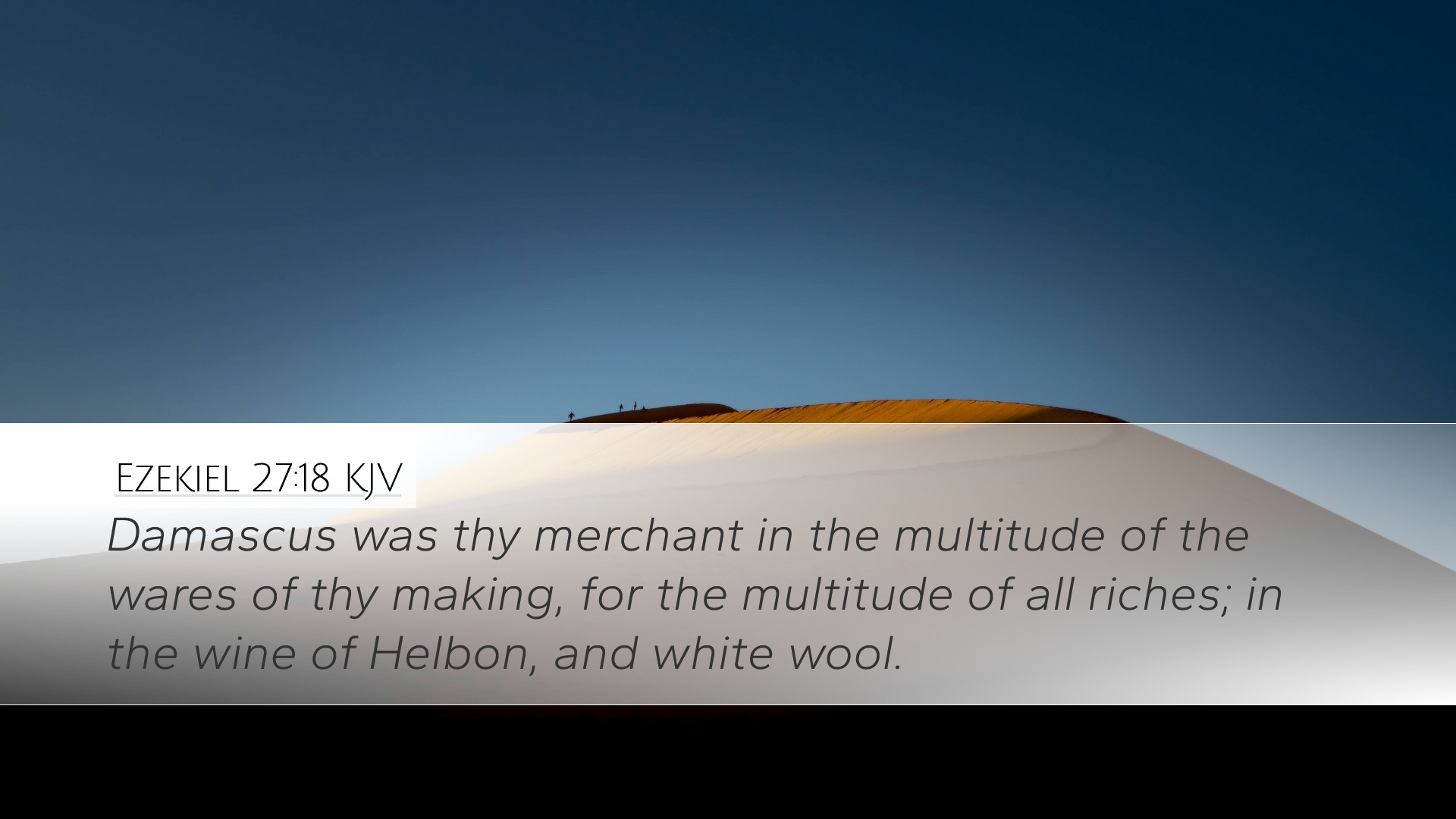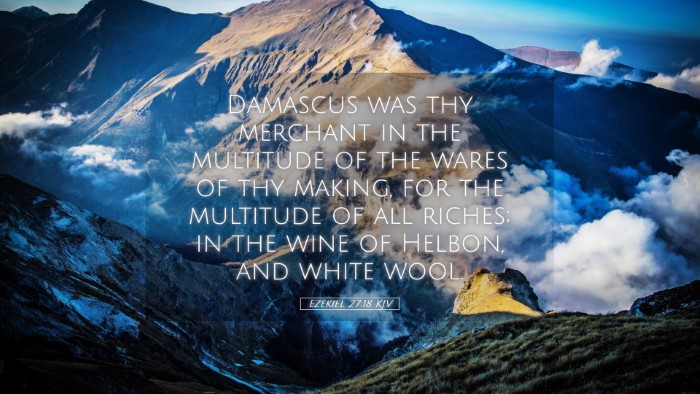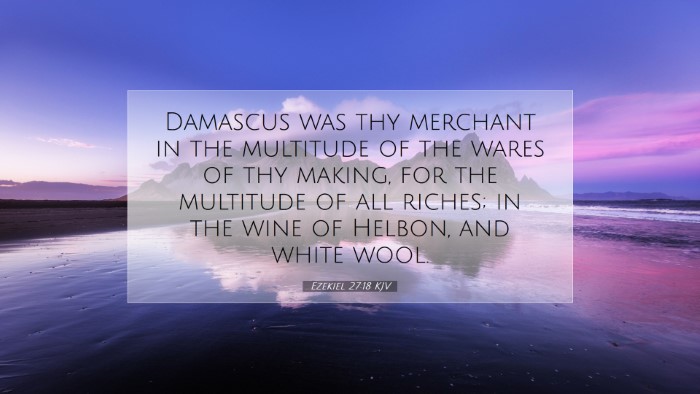Ezekiel 27:18 Commentary
Verse Context: Ezekiel 27 focuses on the lamentation over Tyre, a prominent trading city known for its wealth and influence. In verse 18, as part of this lament, the prophet reflects on the commerce of Tyre and its significance to the surrounding nations.
Text of Ezekiel 27:18
"The merchants of Damascus were in thy market for thy wares: for the multitude of all riches; for the wine of Helbon, and white wool."
Commentary Overview
This verse utilizes the rich imagery of trade and economic transactions to illustrate Tyre's far-reaching influence and the interconnectedness of the surrounding nations. It underscores a dual theme of prosperity and impending judgment.
Insights from Public Domain Commentaries
Matthew Henry Commentary
Henry emphasizes the economic relationships that Tyre maintained with neighboring cities, specifically citing Damascus as a significant contributor to its wealth. The mention of "the wine of Helbon" symbolizes quality and luxury, further illustrating Tyre's central role in trade.
- Wealth Through Trade: Tyre’s market was not only prosperous but also diversified, allowing it to attract merchants from distant places.
- Symbol of Consequences: The eventual downfall of Tyre serves as a warning of pride and excess, pointing to the transient nature of worldly possessions.
Albert Barnes Commentary
Barnes provides an analytical approach, looking at Tyre's economic power through the lens of its commodities. He notes that the reference to "white wool" indicates a high-quality product that signifies luxury and the demands of affluent customers.
- Multicultural Exchange: The verse implies a vibrant cross-cultural trade, extending beyond local boundaries and suggesting broader implications for the ancient Mediterranean economy.
- Future Desolation: Barnes warns that this flourishing trade makes the impending judgment of Tyre even more poignant, as the wealth will not save them from God’s decree.
Adam Clarke Commentary
Clarke reflects on the geographic and economic significance of both Tyre and Damascus. He points out that the mention of specific commodities helps to paint a fuller picture of Tyre’s marketplace and its appeal to diverse merchants.
- Trade as a Reflection of Prosperity: Clarke argues that the presence of merchants from Damascus is indicative of Tyre's extensive trade reach, further emphasizing its importance in the ancient world.
- Judgment Through Loss: Clarke highlights that the loss of such substantial trade will demonstrate not only economic devastation but also spiritual consequences in abandoning true worship for materialistic pursuits.
Theological Reflections
This verse encapsulates a theological truth regarding the relationship between wealth, power, and divine judgment. It invites reflection on how societies often place ultimate trust in economic prowess rather than in God’s sovereignty.
- Idolatry of Wealth: Tyre’s demise serves as a reminder that reliance on material wealth can lead to spiritual idolatry, distracting from dependence on God.
- God's Sovereignty Over Nations: The rise and fall of cities like Tyre affirm God’s control over historical events and His authority to judge nations based on their fidelity to Him.
Application for Today
Pastors, students, and theologians can draw several applications from Ezekiel 27:18:
- Reflection on Economic Practices: Examine current economic systems and practices in light of biblical principles. Are they fostering justice, stewardship, and community wellbeing?
- Warning Against Complacency: The prosperity of nations should not lead to complacency but to humble dependence on God and seeking His righteousness.
- Engagement with Culture: Engage with the marketplace and community with integrity, seeking to reflect God’s values in every transaction.
Conclusion
Ezekiel 27:18 serves as a poignant reminder of the complexities of wealth, trade, and divine oversight. This commentary integrates perspectives from key public domain commentators to enrich our understanding of how Tyre’s fate underlines important spiritual truths that remain relevant today.


